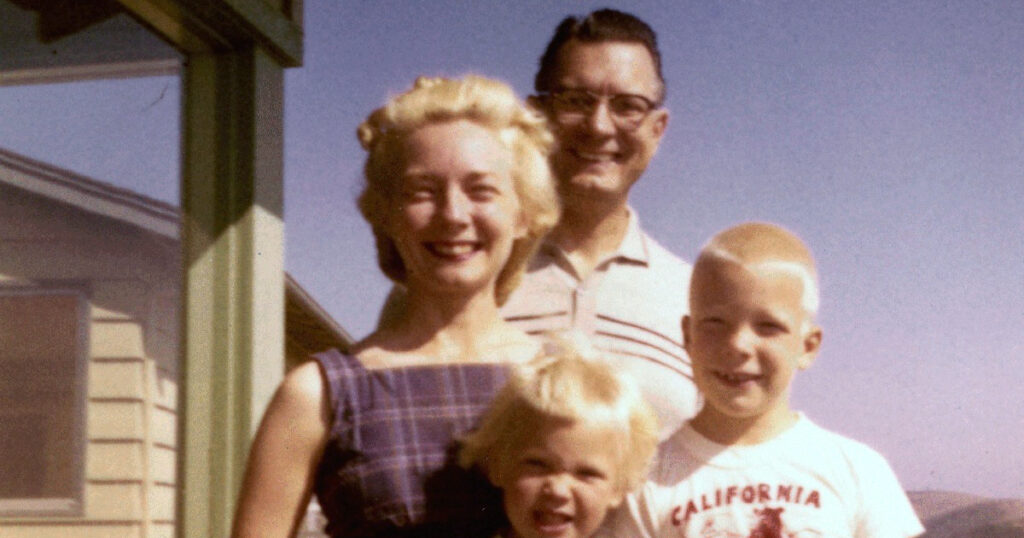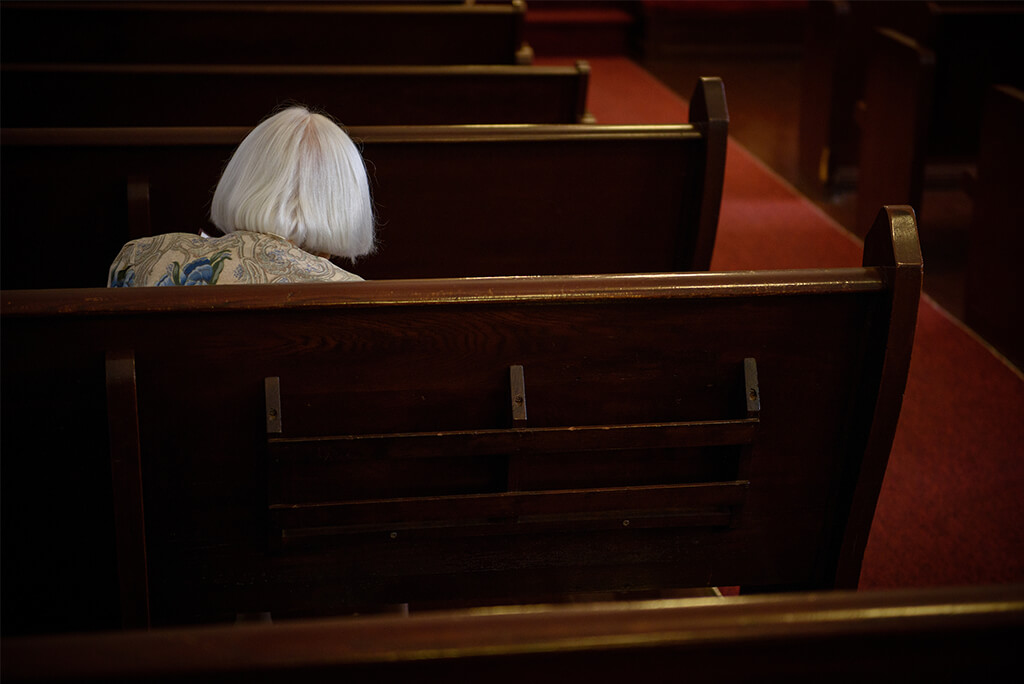By Cheryl Magness
“The nuclear family was a mistake.” Thus ran the headline of a 2020 article by David Brooks in The Atlantic. And while confessional Lutherans and other Bible-believing Christians would certainly disagree with that statement, at least on the face of it, we would also have to admit that the 20th and 21st centuries have not been good for families — nuclear or otherwise.
Everywhere we look, we see the ravages of a self-obsessed culture, the onslaught of secular progressivism and the consequences of our own sinful nature writ large on our own families and the families of others. A September 2023 article from Pew Research on current trends in marriage and family life reported: “In 1970, 67% of Americans ages 25 to 49 were living with their spouse and one or more children younger than 18. Over the past five decades, that share has dropped to 37%.” The article went on to note that as the percentage of Americans in a traditional nuclear family living arrangement has declined, the percentages of those choosing other living arrangements have risen, including that of unmarried individuals cohabitating while rearing children.
But it’s not just the decline of the nuclear family that reflects the brokenness of the family in our culture. That brokenness, which stems from the brokenness of creation, can be seen in a sad multiplicity of ways. In the practice of abortion, parents end the lives of the very ones our Lord has given them to nurture and protect. In the proliferation of divorce, especially no-fault divorce, that which should be a lifelong commitment between a man and a woman, blessed and sustained by their Lord, is tossed aside when feelings change or circumstances become difficult. In the acceptance of euthanasia as a solution for addressing the challenges faced by the aged, disabled or sick, some indicate their willingness to sacrifice the most vulnerable among us on the altar of convenience. In the desire to go outside God’s design for life in pursuit of personal fulfillment, some use advances in medical technology to “create” and store human embryos until such time as they are deemed worthy of living (or not).
Biblically faithful Christians reject such practices on principle. Yet Christians are hardly immune to the pain of broken families. Faithful parents who seemingly did everything right — rearing their children in the church, bringing them to the baptismal font, teaching them the catechism and praying for them unceasingly — watch those children walk away from the faith. Marriages that seemed unassailable to those looking in from the outside collapse due to adultery, abuse or the apostasy of one or both spouses. Adults for whom the challenge of maintaining a relationship with family has reached a tipping point choose to become permanently estranged from parents, children or siblings. In some cases, such estrangement may be necessary for reasons of basic safety and survival; in others, it is a too-easy out for those who don’t want to fulfill their God-given vocations.
It is a sad irony that one of life’s greatest blessings — our families — can become one of its deepest sources of pain. But though this may surprise us, it should not. It is the reality of a fallen creation. God’s good gifts too often become idols, the love of which we elevate above Him, turning them into substitute gods. The creation He designed to live in perfect harmony with Him and that He meant only for our good is twisted, perverted and distorted by the Fall. We need look no further than our first parents, Adam and Eve, and our first siblings, Cain and Abel, to see the devastation sin wreaks upon families, turning husband, wife, children and siblings against one another as they seek their own selfish ends.
The article on the nuclear family shared at the beginning of this piece provides extensive data on the various challenges faced by the nuclear family — challenges that have resulted in the collapse of the 1950s ideal portrayed in television programs like “Father Knows Best” and “Leave it to Beaver.” Many of Brooks’s observations are spot-on regarding how economic realities, increased geographic mobility and cultural phenomena like television, computers and cell phones have contributed to the isolation of nuclear families — separating them, in many cases, from the support system that nearby extended families and closer connections with neighbors once provided. He notes that in recent years there has been a movement toward trying to reclaim some semblance of the extended family: Multi-generational living has made something of a comeback, with increasing numbers of households including not only the nuclear family but aging parents or young adults who have moved in for economic and other reasons. This is not a bad thing. Families should help one another.
Yet Brooks’ solution for reversing the atomization of the family remains lacking. He describes a burgeoning movement — one he hopes will take hold — to replace nuclear families with “forged” families: families that are chosen, not received via biology or circumstance. “The members of your chosen family,” Brooks writes, “are the people who will show up for you no matter what. On Pinterest you can find placards to hang on the kitchen wall where forged families gather: ‘Family isn’t always blood. It’s the people in your life who want you in theirs; the ones who accept you for who you are. The ones who would do anything to see you smile & who love you no matter what.’”
It’s true. Family isn’t always blood. Sometimes our blood relatives let us down profoundly. Yet the answer is not as simple as Brooks suggests. It is easy enough to “forge” a family of people who unquestioningly approve of our lifestyle choices and affirm our pet sins. Maybe we can even forge a family that will hold us to account when we make choices that are harmful to ourselves or others. And there is certainly nothing wrong with looking beyond the nuclear family to build caring relationships with extended family, friends, coworkers and others in our lives to whom we can be a blessing and who can, in turn, bless us. At some point, though, they will all fail us.
There is only One who truly loves us “no matter what” — only one family that will never fail us. It is the family that transcends time, blood, choice or convenience — the family into which we were adopted, not by our own effort, reason or strength, but by the Holy Spirit, who calls us by the Gospel, enlightens us with His gifts, sanctifies and keeps us in the true faith (SC, Third Article meaning, paraphrased). The place that faith is nourished is in our home congregation, where we gather each week to hear God’s Word, receive His gifts in the Divine Service and mutually encourage and serve each other as sisters and brothers in the faith. That family is not perfect, either; sometimes, as explored in the March issue of The Lutheran Witness, it can be painful, even toxic. Nevertheless, our Lord is there, not only in the Word and the Sacraments but in the faces of those imperfect people we sometimes wish we didn’t have to share a pew with.
“Who is my mother, and who are my brothers?” asked Jesus in Matthew 12:48. He provided the answer in verse 50: “Whoever does the will of my Father in heaven is my brother and sister and mother.”
In John 19, before bowing His head and giving up His spirit on the cross, Jesus “saw his mother and the disciple whom he loved … [and] said to his mother, ‘Woman, behold, your son!’ Then he said to the disciple, ‘Behold, your mother!’” “From that hour,” we read, “the disciple took her to his own home” (John 19:26–27).
Families can be messy, exasperating and frustrating. Sometimes they are downright excruciating, breaking our hearts in their capacity to hurt us more than anyone else in the world can.
Yet they are also one of God’s good gifts, provided to us as instruments of His love and care for this earthly life, as well as, sometimes, tools of our Lord’s discipline and instruction as we learn through our suffering. Whatever form your earthly family takes — whether received or forged, nuclear or extended, loving or not-so-loving — know that your eternal family, the family of God, has been made perfect in Christ. In His death on the cross, He took all our family dysfunction — the hurt, the lies, the neglect, the abandonment, all of it — to the grave and left it there for all time so that we might some day rise from our own graves to follow Him to a perfect life together in our eternal heavenly home.
Photo: “W.H. Schumard Family,” Seattle Municipal Archives, c. 1955.





See James 2:15-17. If a brother or sister is suffering deeply because of dysfunction and abuse in the family, and one of you says to them, “Families are ‘one of God’s good gifts’ and ‘we will have perfect life together in our eternal heavenly home’,” without doing anything to provide or seek help, what good is that?
Thank you & I pray 🙏 God, please help me to do what I can to live at peace with everyone. And when it is necessary, give me the boldness to stand up for what is right, honorable, and true. I don’t want to passively accept situations, I want to do what I can to persevere!